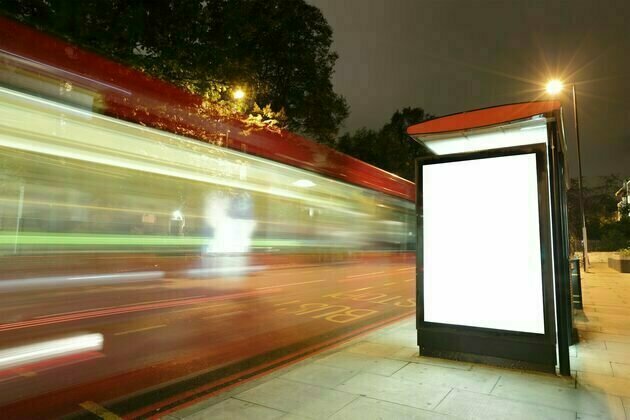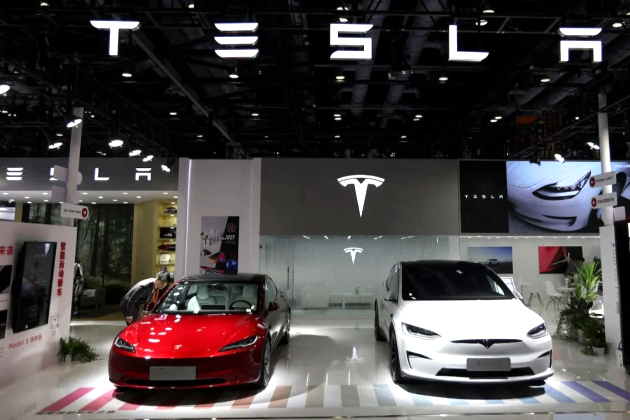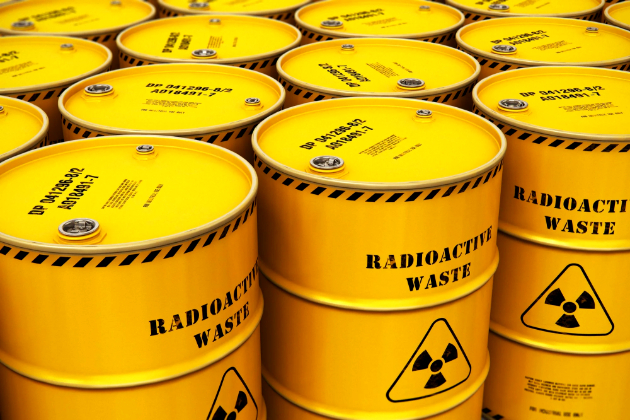Many cities are banning ads for airlines, SUVs and fossil fuels - and yours could be next
The Conversation
10 Mar 2025, 12:00 GMT+10

Towns and cities are pushing ahead with ambitious climate policies, even as global collaboration on climate breakdown splinters. One flagship example is the proliferation of bans on advertising for highly polluting companies and products such as fossil fuels, airlines, luxury travel and SUVs.
In the UK, the cities of Edinburgh and Sheffield have introduced such bans, with billboard ads for fossil fuel companies like Shell and BP, as well as airlines, airports, SUVs, and petrol- or diesel-powered vehicles disappearing from council-owned sites as the policies take hold.
Edinburgh's city councillors acknowledged that achieving the city's climate goals required "a shift in society's perception of success" and that "the promotion of high-carbon products is incompatible with net zero objectives". Councillors in Sheffield stated that the city's advertising ban "tackles some of the impacts of consumerism, advertising and injustice".
Further afield, the Dutch city of The Hague and the Swedish capital of Stockholm have introduced bans, alongside transport networks in Gthenburg, Montreal and Toronto. Many more towns and cities around the world have tabled motions that could blossom into fully functional bans.
Calls for restrictions of advertising on climate grounds have echoed from the top of the United Nations, to the UK's House of Lords and its public health professionals. Celebrity environmentalists like Chris Packham have also endorsed a ban.
Not long ago, it was common to see adverts compelling us to smoke tobacco products. But thanks to effective campaigning, these ads were removed from billboards, football jerseys, television screens and, eventually, everyday life. Tobacco is the most well known historical precedent, but there have been local bans on alcohol advertising, like one proposed in Scotland, and on junk food, like the one on public transport in London - one of the largest collections of physical and digital advertising spaces on earth.
The logic behind advertising bans is straightforward. By prohibiting the advertisement of certain goods and services, you will reduce the consumption of them and, by extension, the harms associated with their consumption, be it emissions, pollution or disease.
After Transport for London introduced its junk food ban in 2019, there was a significant decrease in Londoners eating foods high in fat, salt and sugar. Within the average London household, there was a reduction of over 1,000 calories, a drop of around 7%. Further analysis suggested that the ad ban might be able to prevent nearly 100,000 cases of obesity, which could save the NHS around Pound 200 million. Similar reductions in consumption have been observed in the wake of tobacco advertising bans.
The direct causal link between advertisement and consumption is gaining recognition. Studies have shown that high-carbon advertising increases the demand for these goods and, as a result, drives emissions growth. One 2022 study found that airlines with the biggest advertising budgets had higher ticket sales, suggesting a direct link between ad spend and demand for flights. Another study found that advertising as a whole is responsible for adding 32% to the carbon emissions of every single person in the UK.
Alongside the direct impact of advertising on emissions, high-carbon advertising normalises emissions-intensive forms of consumption, such as frequent air travel. The adverts in question often contain misleading environmental claims, sometimes making people think the climate crisis is less severe or that there is nothing they can do about it.
This is perhaps the more symbolic, but no less pernicious, effect of high-carbon advertising. There is a consensus that phasing out fossil fuels rapidly is essential to stabilising global temperatures and preventing catastrophic impacts, yet these companies spend tens of billions worldwide on advertisements that claim they are "part of the solution". More often than not, this is a one-way conversation: citizens do not have a right of reply when it comes to giant advertising billboards.
More than 1,000 cities worldwide have net zero targets, and over 130 cities have joined the Fossil Fuel Non-Proliferation Treaty. By banning these ads, ambitions and policies can be aligned.
Reducing the demand for emissions-intensive goods and services is an increasingly vital facet of government mitigation strategies. Indeed, the IPCC estimates that demand-side strategies could cut global emissions by between 40% and 70% by 2050. The UK government's official advisory Climate Change Committee (CCC) has recognised that advertising both stimulates demand and shapes norms and aspirations.
With the growth in emissions from SUVs cancelling out progress on decarbonising transport more broadly, it may only be a matter of time before the CCC and other government advisers recommend tighter restrictions on high-carbon advertising.
Ever worsening climate change highlights a tension for the advertising policies of cities and towns. Should they promote the very companies that are undermining public safety, the insurability of their cities, and destroying public spaces through floods, fires and extreme weather events? Some cities have already answered this question with an emphatic "no".
These bans are more than political gestures - they are a crucial step in reducing demand for emissions-intensive goods and aligning public policy with climate science. As climate disasters intensify and the financial burden on cities grows, the question is no longer whether high-carbon advertising should be restricted, but how quickly these policies can be expanded to match the scale of the crisis.
 Share
Share
 Tweet
Tweet
 Share
Share
 Flip
Flip
 Email
Email
Watch latest videos
Subscribe and Follow
Get a daily dose of Sweden Sun news through our daily email, its complimentary and keeps you fully up to date with world and business news as well.
News RELEASES
Publish news of your business, community or sports group, personnel appointments, major event and more by submitting a news release to Sweden Sun.
More InformationScandinavia
SectionTesla sales plunge in Scandinavia and France amid EV market shift
OSLO/COPENHAGEN: Tesla is experiencing a sharp drop in sales across Scandinavia and France as shifting consumer sentiment and an aging...
Greenland heads to polls amid Trump's threats to 'take over'
Washington DC [US], March 10 (ANI): US President Donald Trump again threatened to take over Greenland on Sunday (local time), as it...
Many cities are banning ads for airlines, SUVs and fossil fuels - and yours could be next
Towns and cities are pushing ahead with ambitious climate policies, even as global collaboration on climate breakdown splinters. One...
Iga Swiatek, Jessica Pegula cruise at Indian Wells
(Photo credit: Taya Gray/The Desert Sun / USA TODAY NETWORK via Imagn Images) No. 2 seed Iga Swiatek of Poland and No. 4 seed Jessica...
Marcos Giron pulls off another upset at Indian Wells
(Photo credit: Jayne Kamin-Oncea-Imagn Images) American Marcos Giron rallied past No. 26 seed Alexei Popyrin of Australia 5-7, 6-3,...
Von der Leyen pushes for EU defense union
The European Commission chief has hailed the blocs historic rearmament plan The EU should work towards establishing its own defense...
International
SectionTrump plans executive order to abolish Department of Education
WASHINGTON, D.C.: According to a report in the Wall Street Journal, former President Donald Trump is planning to sign an order to shut...
Israel cuts off all electricity to Gaza, impacting Palestinians and hostages
Already under siege, the heavily-blockaded Gaza Strip, housing more than two million displaced people, as well as the remaining Israeli...
US announces new visa policy targeting immigration facilitators
WASHINGTON, D.C.: U.S. Secretary of State Marco Rubio has announced new visa restrictions. The policy will apply to foreign government...
Ex-LA fire chief loses bid to reclaim job after wildfire fallout
LOS ANGELES, California: Former Los Angeles Fire Chief Kristin Crowley lost her bid to get her job back after being fired by Mayor...
Americans denied opportunity to see movie that won Academy Award
Last Sunday, the Israeli-Palestinian co-production No Other Land was awarded an Academy Award for best documentary. The Oscar – a first...
US Supreme Court to weigh case on nuclear waste storage future
WASHINGTON, D.C.: The Supreme Court is to hear arguments in a case that could determine the future of nuclear waste storage in the...












